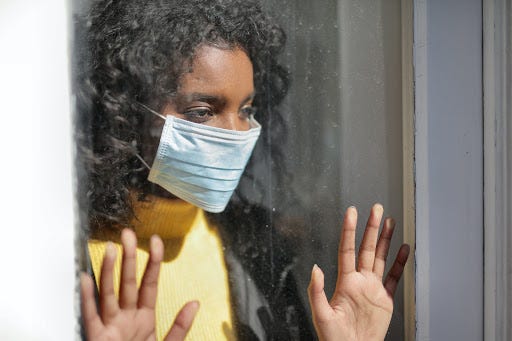Saturday
As I write this it is 364 days since we went into the first lockdown on 23rd March 2020. I don’t think anyone anticipated that a year later we would be in a 3rd lockdown as our nation, and the world, struggles to overcome the challenge that Covid-19 presents.
So much has changed in the last 12 months; a year ago I’d never even heard of Zoom, now there is rarely a day goes by that does not involve at least one Zoom meeting; a year ago I took for granted the chance to pop to the pub for a beer with friends, the warmth of connection that came through shaking someone’s hand or giving/receiving a hug, the chance to sit in the comfort of our own homes sharing time and laughing with family and friends.

In the last year we’ve seen the financial challenges of jobs being lost and companies going out of business, the huge impact on mental health of having to distance ourselves from some of the people that we love most, the extra pain experienced in grieving when we can’t attend a funeral for someone that we have loved, or meet with others afterwards to share our grief and stories of the deceased with others who knew and loved them.
The emotional toll of this last year has been huge and the way that our communities have rallied round to support each other has been magnificent… but a lot of us are tired. On top of this, I know of many people who are experiencing anxiety as they go back into work again, struggling with sharing a workspace with others. Even though there may be all the right precautions in place, the emotional toll of being around people when we’ve spent a year avoiding others is also causing a lot of stress.
The vaccine rollout has given us hope for a better future, but we are not there yet. We hope for a growing economy, and opportunities for jobs and businesses to grow again, but now we are living with the threat of redundancy, the reality of unemployment, or the debts from businesses that have gone under. We hope for the chance to meet safely with those we love, and the chance to share stories of those we have loved that are no longer with us, but for now we have to meet remotely and often manage our grief in isolation.
Of the three days around Easter, we rarely talk about Saturday. On Good Friday we remember the horror of Jesus’ crucifixion and on Easter Sunday we celebrate the resurrection, an event that has brought light and hope to some of the darkest places in the world ever since. Good Friday and Easter Sunday get a lot of press, but little is said about the day in-between. On Saturday the disciples, who have probably not slept for two days, face the grief not only over the death of Jesus, but also over dashed hopes for a better future. They feel the guilt of having run away when Jesus needed them most, and they fear for their own lives in case the authorities come looking for them.
On Easter Sunday everything changed, but on Saturday there was only pain, grief, doubt and fear. John Ortberg writes, “Saturday is the day your dream died. You wake up and you’re still alive. You have to go on, but you don’t know-how. Worse, you don’t know why.”
We can all feel like that at times, and some of us will feel it a lot more than others as we deal with the pain and grief of this last year. We are still living through Saturday, but Sunday is coming. Sunday is a promise we can hold onto, Sunday holds all the hope for the future… but whilst we live through the reality of Saturday, we need to be gentle with ourselves and with each other. In our Saturdays simply being listened to can help us onto a healing journey.

The Trauma Healing Institute advises that we can help our friends and loved ones share their pain by asking three simple questions and listening without offering judgment or solutions:
1. What happened?
2. How did it make you feel?
3. What was the hardest part for you?
I encourage you to take a moment to reflect on the above questions and think about how you might answer them for this last year. This can be an emotional process and it can help to share your thoughts with someone you trust... and with God. The pouring out of anger and grief to God is a form of prayer that people often neglect. It’s a large part of what we find in Psalms in the Bible. When in agony on the cross Jesus cried out the opening words of Psalm 22, “My God, my God, why have you forsaken me?”
Sometimes it can be hard to open up to the people closest to us, if that’s the case for you, then the clergy and pastoral teams of the churches in the area are always willing to share a coffee and listen.
Sunday is coming. We have a way to go yet, but Sunday is coming. Whilst we live through this Saturday, my prayer is that we’d all find the listening ear we need.
Rev Barry Jackson



